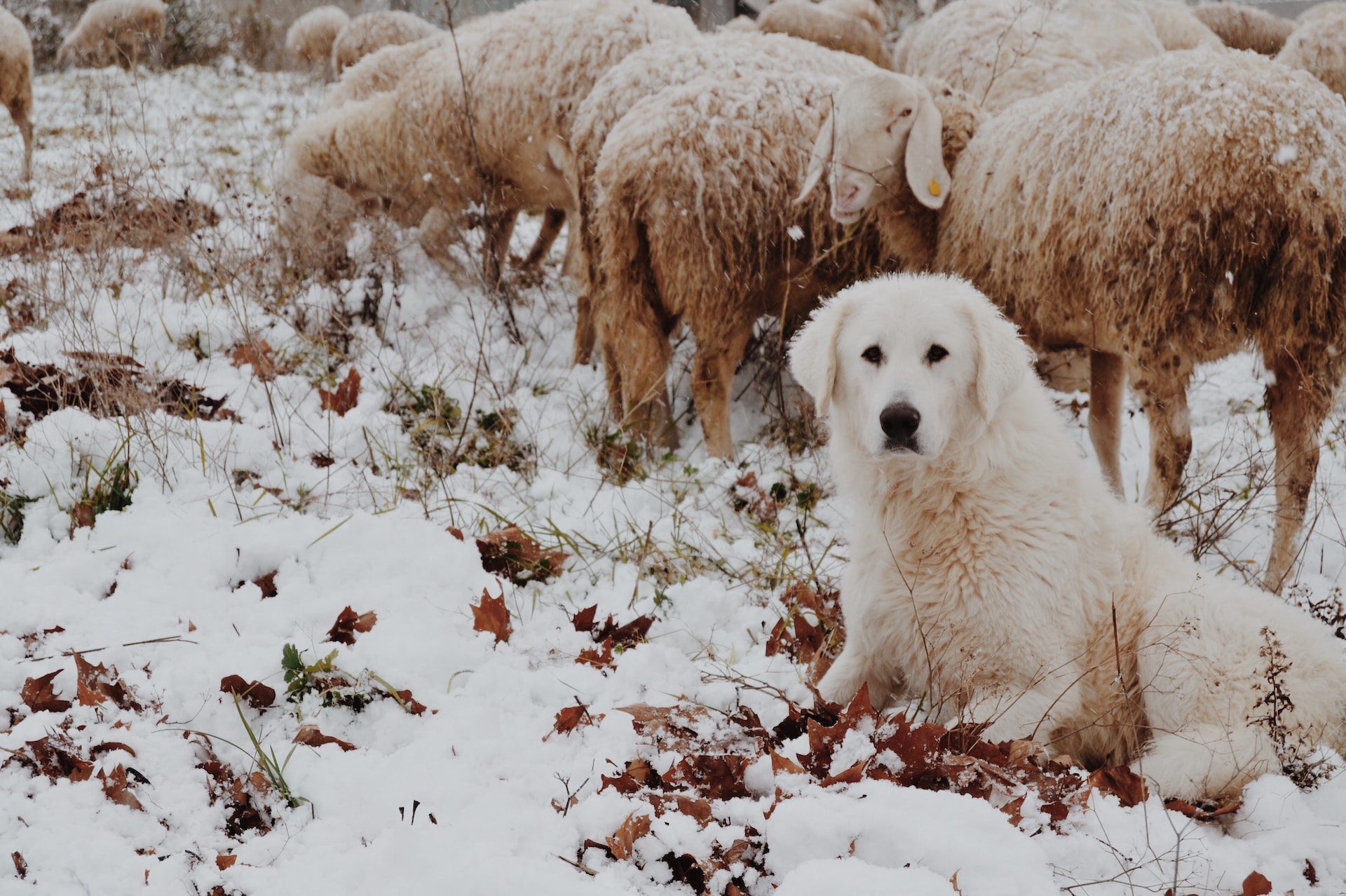Sheepdogs are highly intelligent and loyal working dogs primarily used for handling and guarding livestock on farms. These dogs need to be well-trained, disciplined, and obedient to do their job effectively.
While different breeds of farm dogs are available, sheepdogs, such as Border Collies and Australian Shepherds, are some of the best ones for this role.
This article will provide you with a comprehensive guide on how to train your sheepdog, including the best age to start training, the commands needed, and how to train them effectively.
What Are Farm Dog Breeds?
Farm dog breeds vary depending on the geographical area and livestock they work with.
The American Kennel Club recognizes seven breeds of farm dogs, namely, Australian Shepherds, Border Collies, Bearded Collies, Belgian Malinois, Belgian Sheepdogs, Belgian Tervuren, and Shetland Sheepdogs.
Each breed has unique characteristics that make them ideal suited for specific roles on the farm.

Are Sheepdogs Easy to Train?
Yes, sheepdogs are relatively easy to train due to their high level of intelligence and eagerness to please their owners.
The key to success lies in having a consistent and patient approach to the training. As a farmer, you will need to focus on rewarding positive behavior and correcting negative behavior effectively.
What Are the Commands for a Sheepdog?
Training a sheepdog starts with understanding and teaching them basic, intermediate, and advanced commands.
Basic commands include
- Sit
- Contact
- Stay
Intermediate commands, such as Come, Lie Down, and Heel, are designed to improve obedience and control. Finally, advanced commands like Stand, Stand Stay, or Fetch allow for specialized farm tasks like moving a specific group of sheep or goats.
Teaching and implementing these commands over time, using positive reinforcement, will help your sheepdog be a great companion on the farm.

What is the Best Age to Train a Sheepdog?
The ideal age to train your sheepdog is between six and seven weeks old. This is the time when a puppy starts to recognize basic commands; socialization is crucial, and they are receptive to handling and human contact.
However, it is essential to note that training a sheepdog should be a gradual process that offers plenty of patience and consistency to ensure that dogs grow up disciplined and separation anxiety-free.
Why Do Sheepdogs Lie Down?
Sheepdogs lie down as a part of their herding instinct and training. This behavior is often triggered when the sheep or livestock they are herding become nervous or start to scatter.
By lying down, the sheepdog creates a calming effect, showing the flock that there is no immediate danger. It also places the dog in a ready position to spring into action if the flock decides to move unpredictably.
This strategic positioning is a critical element in maintaining control and effectively managing the herd.

Are Sheepdogs Happy?
Yes, sheepdogs are typically happy when they have a job to do. These breeds have been utilized for years for their herding instincts and working capabilities.
This work provides them with mental stimulation and physical activity, which contribute to their overall happiness.
However, like all dogs, sheepdogs also need a balanced lifestyle with plenty of social interaction, love, and care from their owners. Providing a nurturing environment and addressing their needs ensures that they remain happy and healthy.
Conclusion
Training a sheepdog is essential to ensure that these loyal working dogs become great companions on the farm. With patience and consistency, they can be trained to work with sheep, cattle, and other livestock on the farm.
Focus on teaching basic, intermediate, and advanced commands and rewarding positive behaviors instead of punishing negative ones.
Finally, take your time to socialize the puppy and gradually introduce new situations. A well-trained sheepdog will make farming life much easier and more rewarding.
